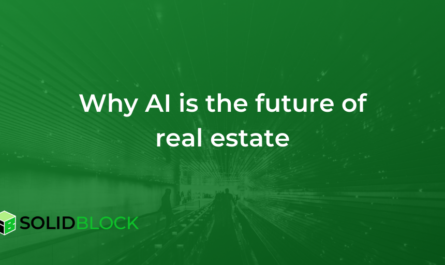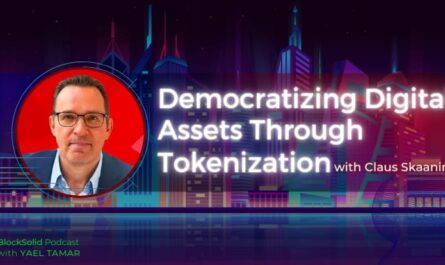
So many of the systemic problems facing minorities today come down to real estate. That means real estate is also the best way to fix some of the worst problems facing minority communities.
In the United States, systemic discrimination in housing dates back to the Jim Crow laws of the Reconstruction-era south. And despite years of advances in civil rights law, problems still persist to this day.
African-American neighborhoods are underfunded, undervalued, and overpoliced. And despite a commitment to affordable housing, municipalities lack incentives to invest in these areas, creating an ongoing cycle of poverty and neglect. (Here’s an excellent short video from NPR all about the shameful history of housing segregation and redlining.)
Today, governments pay lip service to diversity, equality, and affordable housing. But they’re not willing to foot the bill long-term. Most affordable-housing projects in the U.S. are subsidized only through the first year. That’s not enough for banks, who decline to invest in these kinds of projects because there isn’t enough profit to be made.
But what if it was your own neighborhood? Your own friends and family, or their kids, or cousins, young couples starting out, just looking for a break? If you had a chance to invest in the future of your own community, why wouldn’t you do it?
Imagine if there was a way to solve this problem by turning residents into owners.
A way to let people make small investments in their own communities.
Then you’d have something a little like the microfinancing model that’s been used successfully to incentivize growth in developing nations. People would have reason to take pride in the area where they live. And they’d have the power to force municipalities, state, and federal governments to sit up and take notice.
Sound like a dream?
This is the reality we’re trying to achieve at SolidBlock. And the key to making this a reality is tokenization.
Tokenization is a process which takes a physical asset, in this case, a physical, real-world property, and converts it into tokens. These are digital assets which can be bought, sold, and traded like shares. The technology used to record the digital assets is called blockchain, which creates a “digital ledger,” recording all transactions so there’s no possible of doubt, confusion, or fraud.
Tokens are first purchased by investors in a security token offering (STO), similar to the IPO phase of a public company. Following the STO, tokens can be traded in secondary markets just like stocks and bonds, creating demand and liquidity.
An image would be good, something like this?
Splitting up a real estate asset into tokens can make it more democratic:
- Open to smaller investments, starting at hundreds rather than tens of thousands of dollars
- Open to ordinary investors, not just big institutions or wealthy “qualified” investors
- Can be funded in simplified ways that are similar to crowdfunding, appealing to local investors
Tokenization also creates a more appealing investment for a few reasons:
- It’s not necessarily locked in for extended periods of time
- It pays steady, reliable dividends
- It’s based on a real-world asset, real estate, with a permanent, verifiable value
- It’s available to investors worldwide, opening up a vast new marketplace
- It’s traded through a convenient, online platform, locked in with bulletproof cyber security
All of this is true not only for residential real estate, like the homes people live in, but also their businesses. According to a U.S. Senate committee, though minorities comprise 32% of the national population, minority business ownership represents only 18% of the population. And while the number of minority-owned businesses is going up, those businesses are still making less money.
It’s just a reality of life: developers need money to go ahead with their projects. If mainstream loans offer the best available interest rates, then this will drive developers to choose “safe” projects that banks and mainstream lenders will approve of.
When businesses depend on bank funding to give their project the go-ahead, they’re very limited in the types of assets they can raise funds around, by factors like occupancy rates, schedules, returns.
But tokenization changes this equation. Now, diverse businesses can raise funds based on real estate assets for projects which might have been turned down by a mainstream lending institution such as a bank or investment house. They can turn to their communities, or go beyond their mainstream communities to pursue international investment.
Tokenization can help support and sustain diverse neighborhoods by helping revitalize infrastructure.
Who wouldn’t want a high-quality sports facility in their neighborhood? But raising funds from the local municipality can be like pulling teeth. The need is especially urgent need in minority and socioeconomically disadvantaged neighborhoods, where lack of safe access to outdoor spaces and high-quality recreational facilities – or even reliable sidewalks! – have directly led to an increase in obesity, hypertension, diabetes, and even some forms of cancer.
Tokenization breaks down those barriers, letting developers raise support within the local community. By working hand-in-hand with local stakeholders, tokenization creates a golden opportunity: the chance to fundraise through smaller, affordable investments.
At SolidBlock, we are constantly working with partners such as FIBREE and the Chamber of Digital Commerce to create technology and standards for blockchain-based real estate investment all over the world. We believe this is the best way to support diverse communities and businesses in their grassroots efforts to grow and thrive.
Let’s harness the technology in our hands today to build the future we all want to live in.To find out how tokenization can help get your real estate project off the ground, click here to choose your best time to chat.

 by
by 

